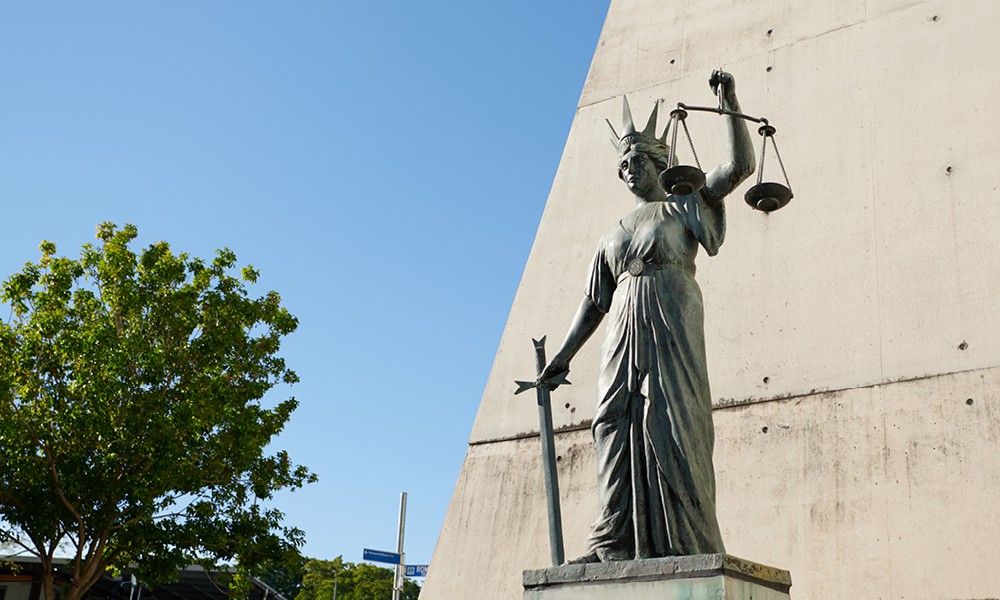…group member of class action appeals Independent Counsel’s decision – whether Federal Court has jurisdiction to hear appeal – whether Commonwealth ‘outside Victoria’
In Casey v DePuy International Ltd (Appeal from Independent Counsel) [2023] FCA 254 (24 March 2023), the court considered an appeal arising out of the settlement of the De Puy knee replacement class action.
The class action alleged a prosthesis designed for fitting during total knee replacement surgery was neither fit for purpose nor of merchantable quality.
In 2012, the court approved a settlement under s33V(1) of the Federal Court of Australia Act 1976 (Cth) (FCA Act) on terms including a compensation protocol, which involved the appointment of a person known as the ‘Independent Counsel’ to determine quantum in the event of dispute.
The settlement deed provided that a person could appeal to the Federal Court on points of law from the Independent Counsel’s determination. The applicant was awarded approximately $1.1m and appealed to the court on the basis the Independent Counsel made an error of law in rejecting part of her claim.
Before considering the substance of the appeal, Perram J first addressed the question of whether parties may, by means of a deed of settlement, confer jurisdiction on the court (at [4]-[22]).
The parties contended that jurisdiction was conferred because the matters the subject of the appeal arose under a law of the Parliament, consistent with s76(ii) of the Constitution, but differed as to which Commonwealth law vested the court with jurisdiction.
Perram J concluded that an appeal under the terms of a deed of settlement – which formed part of a settlement in respect of which the court has granted its leave under s33V(1) of the FCA Act – is a matter arising under s33V(1). Further, that it is therefore within the court’s jurisdiction conferred by s39B(1A)(c) of the Judiciary Act (at [18]).
However, Perram J identified that this finding is contestable and preferred the safer route, which would be to make a retrospective order under s33V(2) – requiring the respondents to pay eligible applicants any amounts determined to be due in accordance with the compensation protocol (at [19]). The appeal would then have arisen directly under this order.
The subject of the appeal was that the Independent Counsel had erred in deciding the applicant could not be compensated for expenses that the applicant contended WorkSafe was entitled to claim from her.
To determine whether WorkSafe was so entitled, the Independent Counsel was required to consider whether a claim under a law of the Commonwealth is a claim under the law of a place ‘outside Victoria’, for the purposes of s85(6) of Accident Compensation Act 1985 (Vic).
Perram J found that outside Victoria meant “outside to some extent” (at [35]) and that the Commonwealth is a place ‘outside Victoria’. The Independent Counsel had instead considered whether the injury had taken place outside Victoria, which Perram J found was erroneous (at [37]). Perram J therefore upheld the error of law identified by the applicant.
The respondents argued the Independent Counsel had engaged in other errors of law, including by failing to consider that, in order for an expense to be compensable, it must be shown that the third party was seeking to recover its expenses (at [55]). Perram J rejected this contention, finding it was neither open on the proper construction of the terms of the deed (at [62]-[63]), nor an implied term (at [80]).
Perram J also rejected the respondents’ contentions that Independent Counsel could have rejected Ms Davidson’s claim under s85(6). This was on the basis that she had not mentioned it in her initial claim (at [104]), and that it was not open to the Independent Counsel as a matter of law to conclude, other than that certain payments were not causally linked to the implantation (at [120]).
Shanta Martin is a barrister at the Victorian Bar, ph 03 9225 7222 or email shanta.martin@vicbar.com.au. The full version of these judgments can be found at www.austlii.edu.au. Numbers in square brackets refer to a paragraph number in the judgment.













Share this article